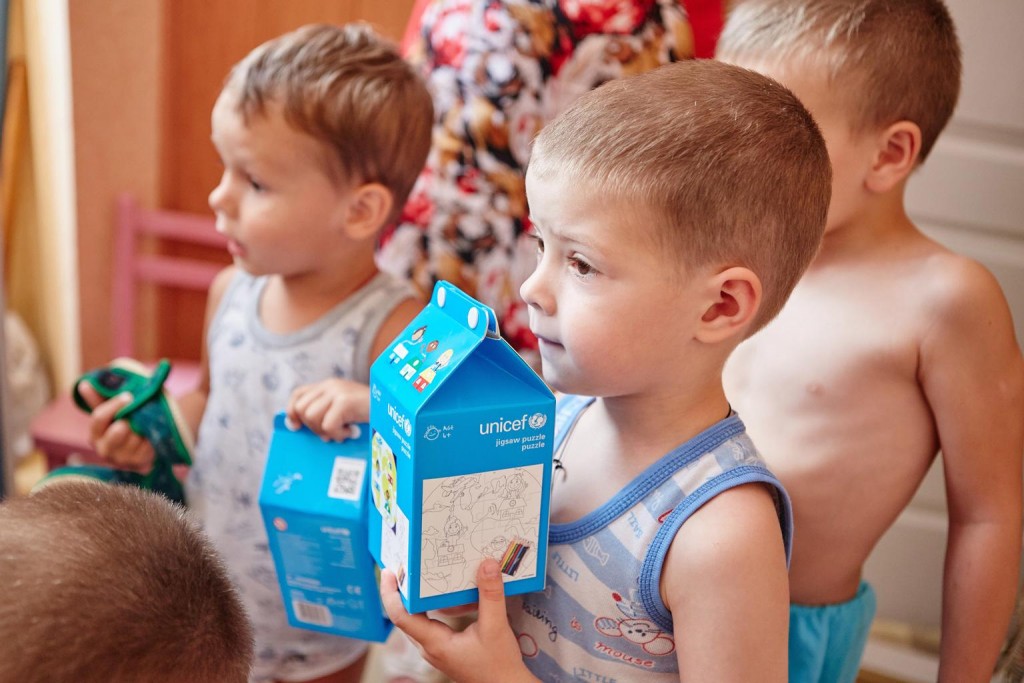Two years on, Ukraine conflict affects over half a million children - UNICEF
2016-02-19
© UNICEF/UN09083/Bershadskiy - A girl gets her oral polio vaccine in the children’s municipal policlinics. In total, 4.7 million Ukrainian children should be immunized against polio during the nationwide campaign this month.
More than 200,000 children need psychosocial support
GENEVA/ NEW YORK/KYIV/ HONG KONG, 19 Feuary 2016 – The conflict in Ukraine has deeply affected the lives of 580,000 children living in non-government controlled areas and close to the front line in eastern Ukraine, UNICEF said today. Of these, 200,000 – or one in three – need psychosocial support.
“Two years of violence, shelling and fear have left an indelible mark on thousands of children in eastern Ukraine,” said Giovanna Barberis, UNICEF Representative in Ukraine. “As the conflict continues, we need to reach these children urgently to meet their physical as well as psychological needs.”
More than 215,000 children are internally displaced from the conflict-affected areas. At least 1 out of 5 schools has been damaged or destroyed. Last year, more than 20 children were killed and over 40 were injured. Out of those, 28 casualties were caused by mines and exploded ordnance. A polio outeak was confirmed in Ukraine 19 years after the country was declared polio free.
Damage to basic infrastructure has put the water supply at risk for some 2 million people across the frontline.
As temperatures plummet, fuel shortages and high prices of coal are leaving children at risk of respiratory infections. Lack of access to health services and a shortage of medicines are threatening more disease outeaks.
“UNICEF calls all parties to the conflict in Ukraine to ensure safe movement and unhindered humanitarian access to help children in need,” Ms Barberis said.
UNICEF has been working with partners to provide children with the basic services they need. To date, UNICEF has:
- Provided psychosocial support to over 46,000 children and trained almost 5,000 teachers and psychologists to identify signs of distress among children.
- Reached 1.6 million people with safe water and over 164,000 children and adults with essential hygiene items.
- Distributed education kits and school supplies to over 200,000 children.
- Reached nearly 280,000 children with information on the risks of landmines and unexploded ordnance.
- Delivered antiretroviral drugs to 8,000 people and children living with HIV in non-government controlled areas and HIV testing for over 31,000 pregnant women.
- Procured polio vaccines for 4.7 million children.

© UNICEF/UNI188870/ZmeyChildren hold the jigsaw puzzles they have just received, in the ‘Katusha’ kindergarten in the city of Kramatorsk in Donetsk Region – one of the areas worst affected by the fighting.
Earlier this year, UNICEF has called for an additional HK$423.5 million (US$54.3 million) to address the humanitarian needs of the most vulnerable children in conflict-affected areas.









